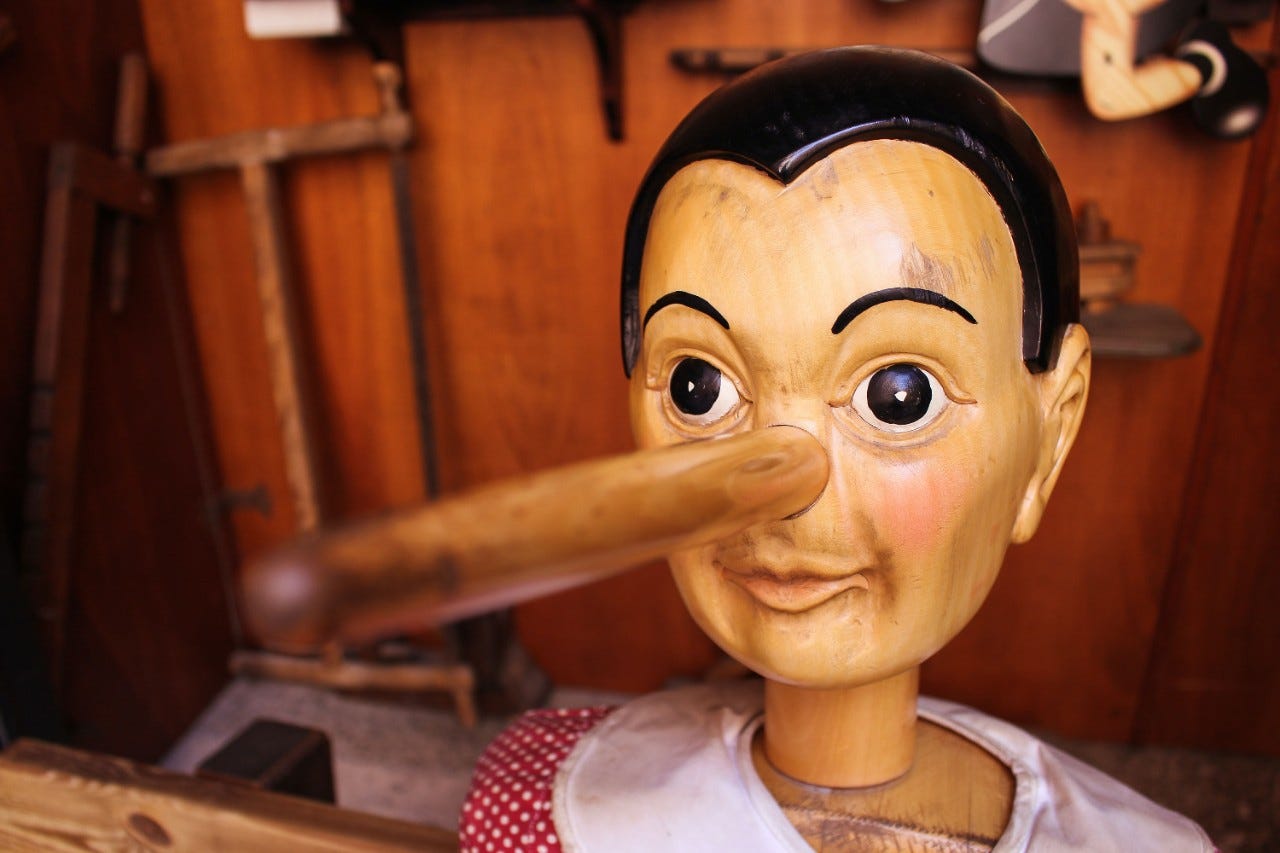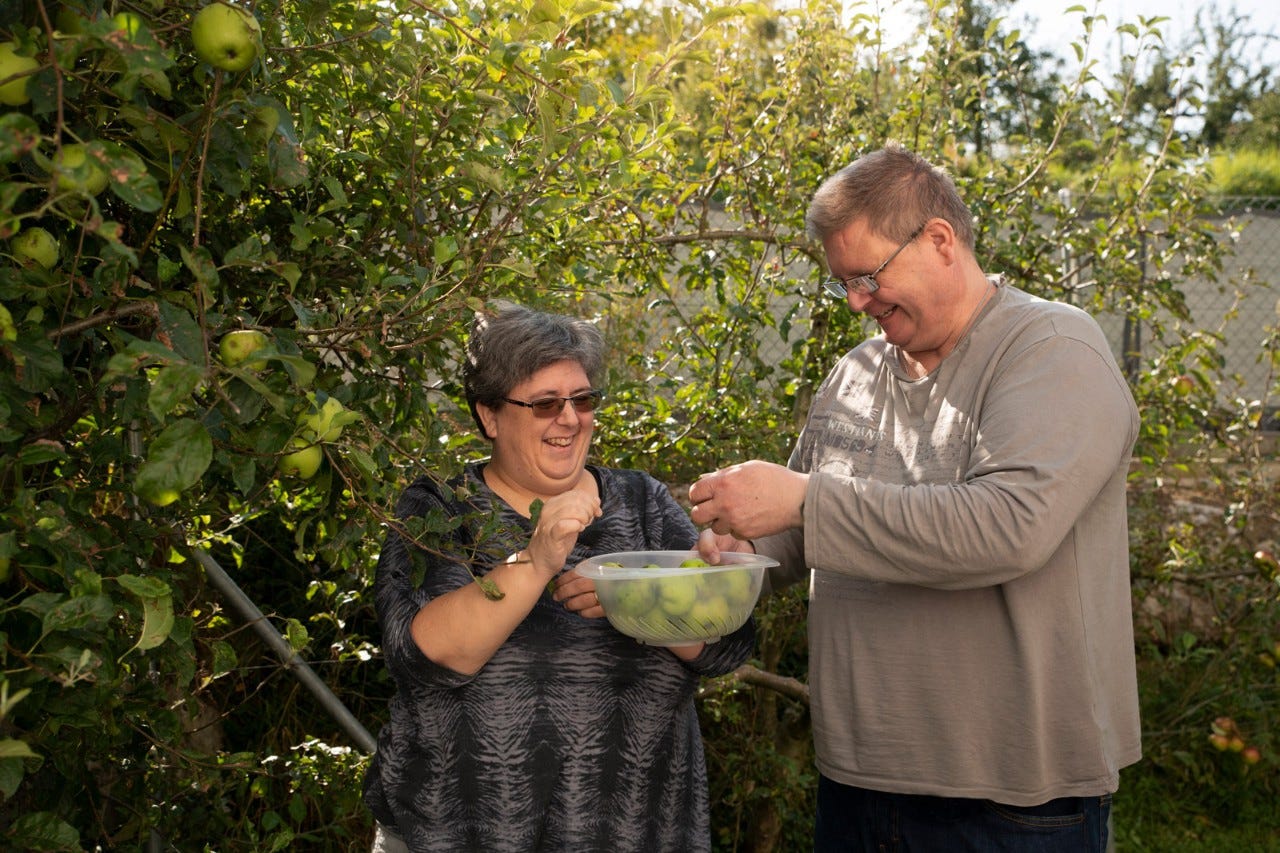Why people lie
Since Pinocchio, every child knows that honesty is a virtue. But is lying sometimes the best policy? There are definitely good reasons for fibbing.

Expert in lies and author Andrea Haefely explains why people lie and how to tell if someone is not telling the truth.
When was the last time you lied?
In a meeting this morning, I didn’t say everything that I was thinking. To keep quiet about something is also a form of lying. Often we lie to be polite. For example, when I tell a colleague that her new hair cut looks nice, even though it doesn’t suit her.
Why do we lie in these kinds of situations?
Humans aren’t solitary creatures – we need approval from those around us. Seen this way, lying is an important social skill that facilitates social cohesion and harmonious coexistence. In fact, lying can even safeguard your job or ensure your survival, for example if a person from Eritrea denies he’s gay because homosexuals are persecuted in his country.
So what’s the definition of a lie?
There’s always a reason for lying – with either a good or bad intention. We mainly tell white or polite lies to protect ourselves or the person we’re talking to. Bad lies, on the other hand, are either selfishly motivated when someone gains an advantage at the expense of others, or even deliberately harm others. Bad lies are toxic for social or working relationships, because they erode trust.
“Never lying is impossible.”
Some studies say we lie more than 200 times a day, while others put the figure lower at 25 times. What’s true and what not?
There are no reliable figures that apply to everyone. However, under certain circumstances, 200 times a day certainly sounds realistic, particularly if you include concealment.
Do you believe someone who says they never lie?
It’s impossible never to lie – unless you want to lose friendships, your job or sometimes even risk getting a black eye. US psychologist Brad Blanton, who promotes radical honesty, has received several slaps to the face. He claims that close relationships are only possible when you’re always honest. In my opinion, this is an entirely selfish approach and not compatible with harmonious coexistence.
In what situations should you explicitly tell lies?
With very few exceptions, neither your employer nor landlord may enquire about whether you’re pregnant or about your sexual, religious or political orientation. You may answer these questions explicitly and by law with a lie.
Do men and women lie differently?
Studies show that there are actually gender-specific differences. Women tend to lie for the benefit of others, for example to keep the peace between family members, In contrast, men tend to lie for selfish reasons in order to present themselves as successful.
“Many more people believe that lying is a better way out of a tricky situation than telling the truth.”
Is lying typically a human characteristic or do animals lie, too?
Various studies and my personal experience indicate that lying is not exclusive to humans. Whenever we would prepare meat in the kitchen, our dog used to start barking at the door. As soon as my father went to see who was there, our dog stole the meat. Of course, there was no one at the door. Our dog lied systematically and with a specific goal in mind. And my father fell for it time and again.
To get back to people: how can I tell if someone is lying?
There are no clear indications, only clues. For example, if someone touches their nose, avoids direct eye contact or sweats profusely. However, these signs can also be misleading. The person may just be stressed by all the questions. The common idea of what a liar looks like can have dire consequences. In some cultures, for example, it’s not proper for women to look male strangers directly in the eyes. When interviewing refugees, equating no eye contact with lying can be a big mistake.
So lying is also a question of culture?
Definitely. Social acceptance of lies varies from culture to culture. Sociocultural studies indicate that many more people believe that lying is a better way out of a tricky situation than telling the truth. In Asian and Arabic countries, for example, people prefer to answer a question with anything rather than admitting that they don’t know. Not having an answer to a question is considered impolite. And it’s also about losing face.
What should I do if I’m caught in a lie?
If you’re caught in the act, it’s best to confess everything straight away rather than bit by bit. This will take the wind out of your critic’s sails. The damage to your reputation will be greater if you deny a lie for months only for the truth to come out eventually. One good example is Bill Clinton, who denied the affair with his assistant Monica Lewinsky for a long time despite clear evidence. It was much more embarrassing for him than if he had confessed everything from the start. And: Apologize in a way that makes the other person feel valued.
Andrea Haefely is journalist, an expert in lies and author of the book ”Schweigen, schummeln, lügen” (Silence, cheating and lies), published in 2014, Beobachter edition.


